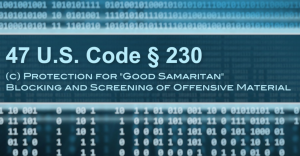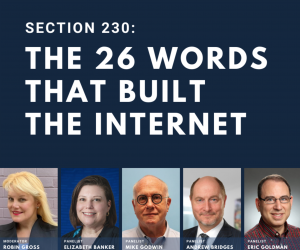Online Platforms Provided Significant Discretion Over What They Choose to Delete on Their Systems
 On 11 March 2021, a three-judge panel of the Court of Appeals for the Second Circuit unanimously upheld a ruling issued from the Southern District in New York that dismissed a lawsuit brought by James Domen and Church United alleging Vimeo discriminated against them for deleting the Church United’s account from its online video hosting platform. Both the lower court and the appellate court found that Section 230 of the Communications Decency Act (“CDA”) immunizes Vimeo from this lawsuit.
On 11 March 2021, a three-judge panel of the Court of Appeals for the Second Circuit unanimously upheld a ruling issued from the Southern District in New York that dismissed a lawsuit brought by James Domen and Church United alleging Vimeo discriminated against them for deleting the Church United’s account from its online video hosting platform. Both the lower court and the appellate court found that Section 230 of the Communications Decency Act (“CDA”) immunizes Vimeo from this lawsuit.
James Domen and Church United alleged that Vimeo discriminated against them on the basis of their religion and sexual orientation when it deleted Church United’s account from Vimeo’s platform. The district court concluded that Vimeo deleted Church United’s account because of Church United’s violation of one of Vimeo’s content policies barring the promotion of sexual orientation change efforts (“SOCE”) on its platform. This policy, in turn, fell within the confines of the good-faith content policing immunity that the CDA provides to interactive computer services.
 San Francisco Intellectual Property Blog
San Francisco Intellectual Property Blog























